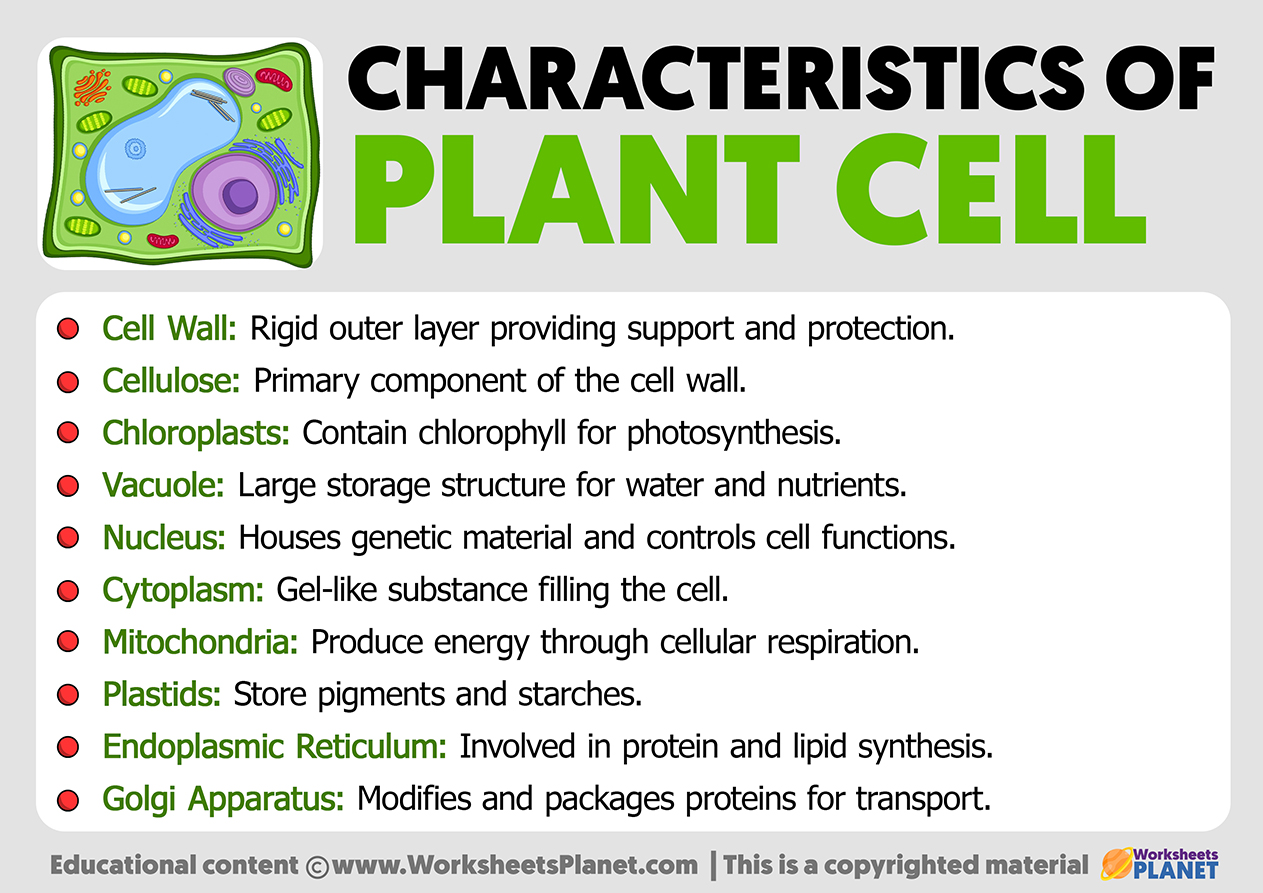A plant cell is the basic structural and functional unit of a plant. It has a rigid cell wall made of cellulose, chloroplasts for photosynthesis, and a large central vacuole for storage and maintaining turgor pressure.
Plant cells also contain organelles like the nucleus and mitochondria, enabling various cellular processes.

- Cell Wall: Rigid outer layer providing support and protection.
- Cellulose: Primary component of the cell wall.
- Chloroplasts: Contain chlorophyll for photosynthesis.
- Vacuole: Large storage structure for water and nutrients.
- Nucleus: Houses genetic material and controls cell functions.
- Cytoplasm: Gel-like substance filling the cell.
- Mitochondria: Produce energy through cellular respiration.
- Plastids: Store pigments and starches.
- Endoplasmic Reticulum: Involved in protein and lipid synthesis.
- Golgi Apparatus: Modifies and packages proteins for transport.

